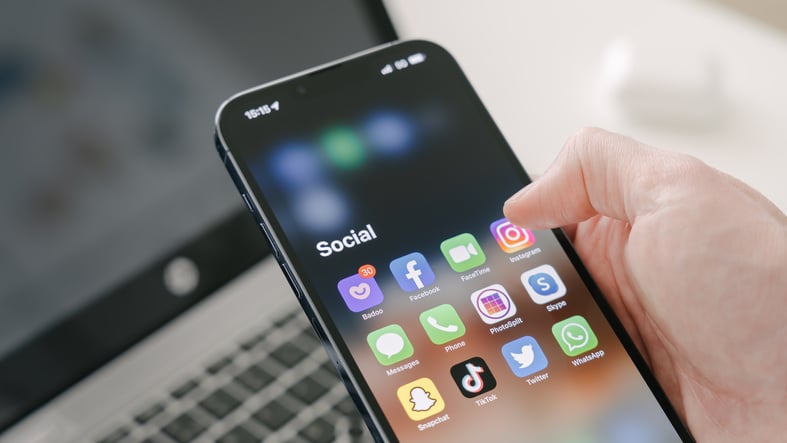
One of Twitter’s most distinctive features is its ‘follow’ mechanism. You can ‘follow’ other tweeters and thereby see their tweets in your timeline, but they are under no obligation to follow you back. This is in stark contrast to Facebook, where you ‘confirm someone as a friend’ – the very phrase implies a reciprocal relationship. Add someone on Facebook and you automatically see all their updates in your news feed. No real problem if you have 32 – or even 102 – friends, but less ideal if you are famous and have thousands of people competing for your attention online.
Once celebrity users began to voice their frustrations with these issues, Facebook introduced a new mechanism, whereby you could declare yourself a ‘fan’ of someone or something on the site. This dealt with the issue of communication overload but there was still something missing. There is little real difference, after all, between a Facebook page and a conventional website. It is just as packaged and impersonal.
Then Twitter came along and the celebrities flocked. Here was the perfect way to talk directly and easily to your fans, unmediated by PR men or even – gasp! – journalists. It was direct, immediate, and heart-felt – or at least it seemed to be.
Fans could follow the famous in the tens of thousands and that had no effect on who they personally chose to follow. It was ideal.
But celebrity tweeters still have a problem – what to do when one of their Twitter followers tries to talk to them. Anyone can, after all, send an ‘@’ message to anyone else on Twitter, and that person will then see it in their timeline, regardless of whether they follow you. They can choose to block you, but this is a painstaking, individual process.
If the famous person responds to @messages, they please a few fans but risk encouraging a flood of other messages from enthusiastic but unrealistic tweeters. Or should they just ignore them? Most celebrities – understandably – opt for the latter course most of the time, and this has the additional benefit of discouraging Twitter ‘trolls’ who might otherwise line up to make rude comments in the hope of provoking a response.
Last week saw the launch of an entirely new spin on celebrity tweeting. Twitrelief, part of the annual Comic Relief initiative, sees a variety of comedians, presenters, authors, fashion designers and actors offering eBay bidders the chance to win a ‘superfollow’, in which said celebrity will follow their tweets for 90 days, retweet one of their 140-character utterances, and also send them an ‘@’ message. Many of the participants are also offering various extras – personal appearances, signed scripts, walk-on parts – the list goes on.
Despite the worthiness of the cause – all the money raised goes, of course, to Comic Relief – the launch caused a great deal of controversy on – where else? – Twitter. Many Twitter users condemned the concept – it was self-aggrandising, they claimed, it was reducing genuine, albeit Internet-enabled, human interaction to a commodity. Others argued passionately that it was for charity and therefore above any kind of criticism. Proponents of each view angrily unfollowed each other and for a while on launch day (March 10), Twitrelief was an official Twitter trend.
At the risk of sounding cynical, I took the critical view. Isn’t there, after all, something inherently undignified about effectively paying to have a celebrity listen to what you have to say? I also think the eventual winners of each so-called superfollow will find it hard to relax and be themselves on Twitter for the duration of the 90 days. Some will no doubt gush and embarrass themselves, others will feel they need to engage in 140-character performances in the probably vain hope of impressing their temporary Twitter buddy. And even if they do manage to engage the celebrity in a genuine conversation or two, the artificiality of the whole enterprise will be thrown into stark relief on the 91st day when their new Twitter friend unfollows them.
But perhaps I am taking too negative a view. Lots of money will, of course, be raised for worthy causes and perhaps many of the auction winners will genuinely enjoy the experience.
Twitrelief poses some intriguing questions about the nature of social networking. Can it be packaged and commoditised in this way? Should we expect social networking-enabled communication to be genuine on some level or is it inherently artificial? In other words: is a tweet from Stephen Fry the equivalent of a backstage autograph?




